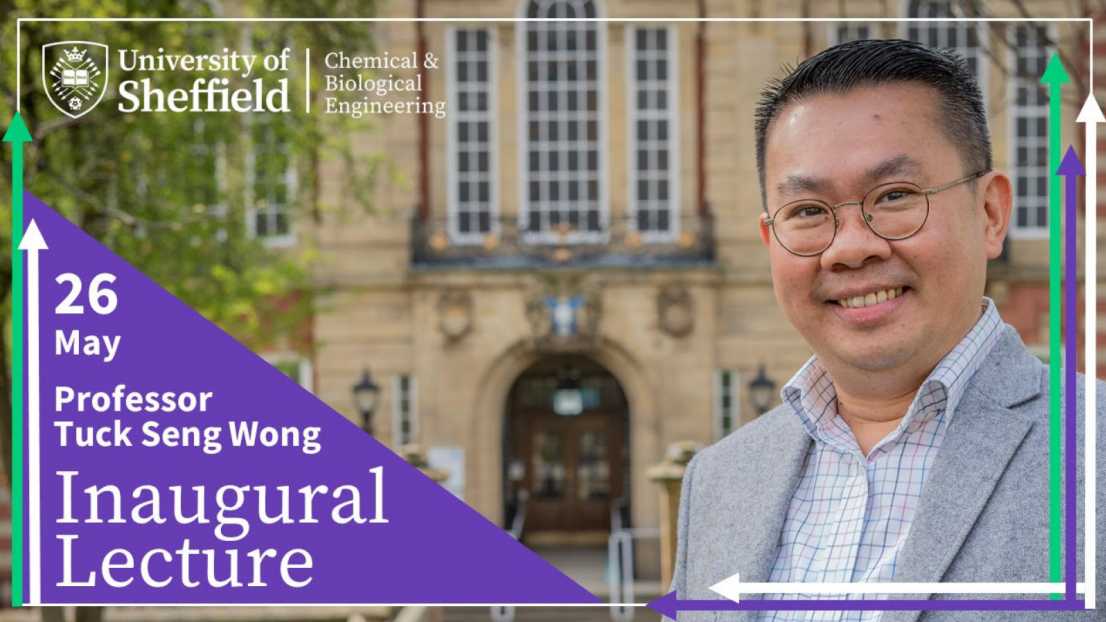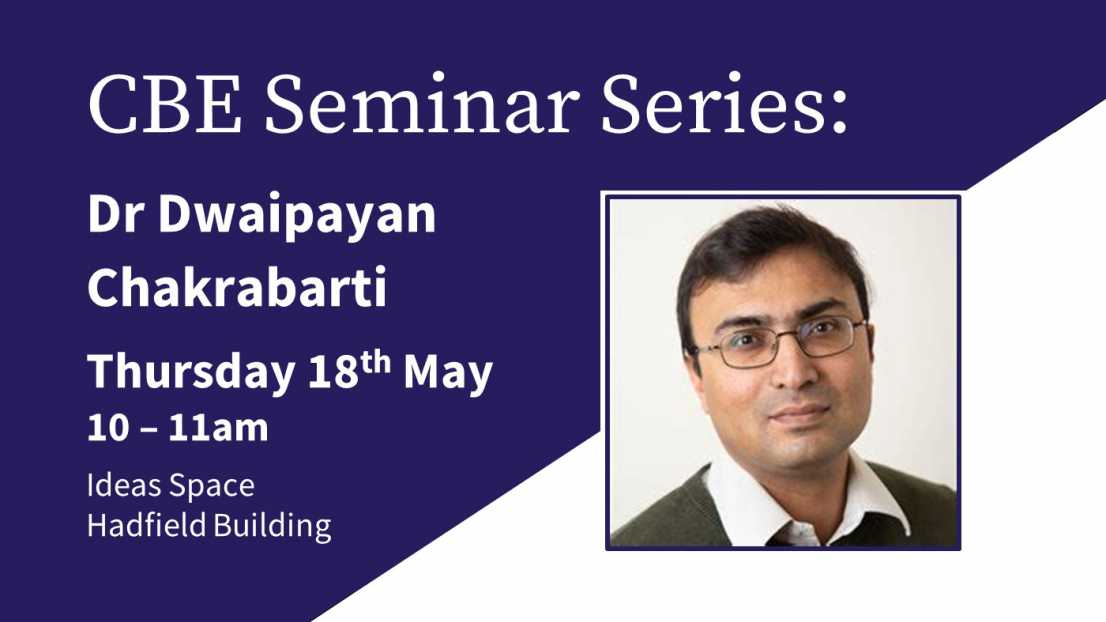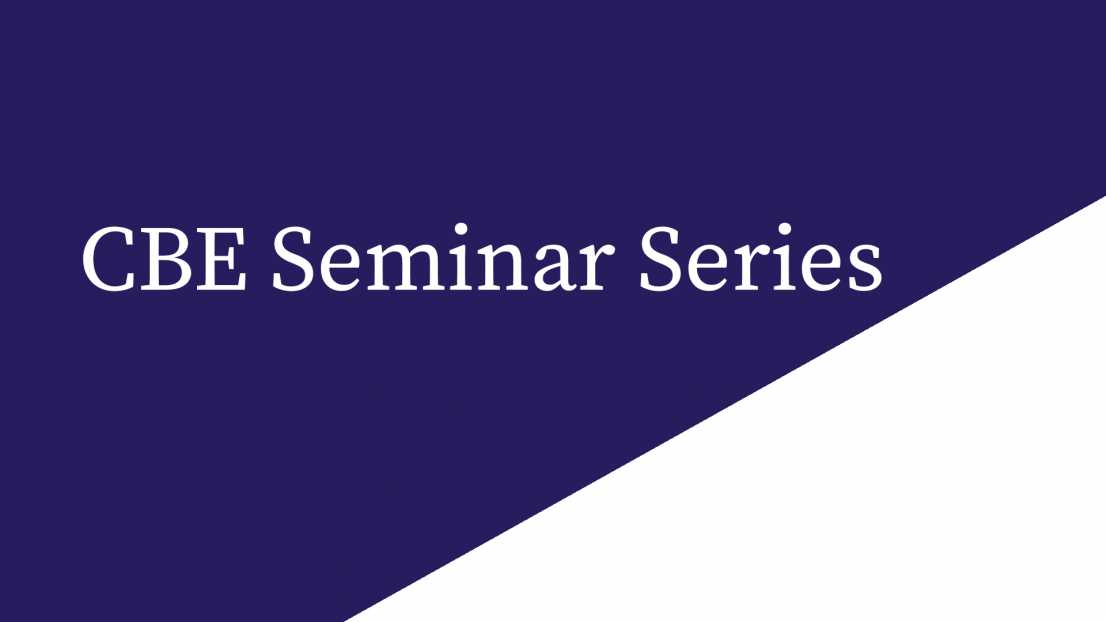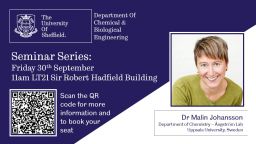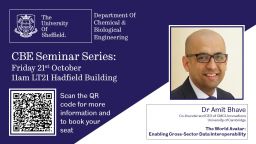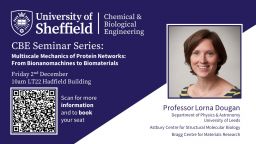Events
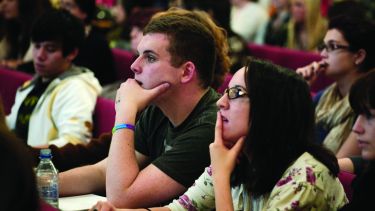
Throughout the year, we host a variety of events in the department, ranging from fun and casual to informative events - and everything in between. See below for our upcoming events, or for specific information on the CBE Seminar Series.
Upcoming Events
CBE Seminar Series
We host an exciting and engaging research seminar programme throughout the year. The CBE Seminar Series sees guest speakers from around the world come to Sheffield to share their insights, offering the chance to hear about cutting edge research across a range of topics. Our seminars are open to all.
Past Seminars
Dr Lucia Marucci (University of Bristol)
27 January 2023
- Biography
-
After completing her studies in Mathematics, Dr Marucci started a PhD in automatic engineering, focused on the design of synthetic gene network (University of Naples, Italy, PhD award 2010). She then moved to the Centre for Genomic Regulation (Barcelona, Spain) where she was awarded an EMBO Long term fellowship to study gene expression dynamics in pluripotent stem cells.
Dr Marucci moved to Bristol in 2013, where she is currently an associate professor in systems and synthetic biology, and an Engineering and Physical Sciences Research Council (EPSRC) fellow. She co-directs the Bristol BioDesign Institute, a specialised research institute in synthetic biology.
Dr Marucci's research is focused on developing quantitative tools to understand cell dynamics and engineering-inspired methodologies for controlling living system functions, with the final aim to both disentangle and reprogram the complexity governing life.
Her approach combines tools from different disciplines: control engineering, systems and synthetic biology, and computer science.
The interdisciplinary research group Dr Marucci leads works on 3 main research areas:
1. Synthesis of controllers which can robustly engineer novel cellular functions while expanding the repertoire of redesigned phenotypes across organisms;
2. Implementation of pipelines that can support whole-cell design and make synthetic biology design-build-test-learn cycles more predictable and efficient;
3. Understanding of the endogenous processes which regulate higher organism gene expression in space and time for superior, nature-inspired design aims.
Steve Ferguson
24 February 2023
Gianvito Vilé
Single-atom catalysts for a new generation of industrial chemical processes
24 March 2023
- Abstract
-
New catalytic processes are urgently needed to drive the transition to a cleaner and more sustainable future. Single-atom catalysts represent the new frontier of catalyst design and can accelerate the shift to a greener future due to their groundbreaking reactivity and ability to economize the amount of critical raw materials.
This lecture will present Vilé's groundbreaking contributions to this emerging field, from discovering these new catalysts, to the possibility of studying their reactivity under continuous-flow conditions. Specifically, by focusing on coupling reactions, Vilé will demonstrate that single-atom catalysts can provide unprecedented degrees of activity and selectivity compared to state-of-the-art catalysts. With the help of density functional theory calculations and operando characterization studies, Vilé will also elucidate the active sites and describe the reaction mechanisms. Finally, Vilé will demonstrate how the catalysts can be nanostructured in flow reactors to obtain novel structured films and foams with integrated single-atom functionalities. - Biography
-
Prof. Dr. Gianvito Vilé studied Chemical Engineering at Politecnico di Milano and received his PhD from ETH Zurich. He is currently a tenure-track assistant professor at Politecnico di Milano. His research focuses on the understanding of the structure and reactivity of new single-atom catalytic systems, and on the design of sustainable chemical processes. He has received numerous awards for his research, including the ETH Zurich Medal for outstanding doctoral thesis, the Dimistris N. Chorafas Award from the Weizmann Institute of Sciences in Israel, the Felder Award, and the Alfredo di Braccio prize for Chemistry from the Academia dei Lincei, the Italian National Academy. He was also selected among the most influential researchers by leading journals of the American Chemical Society, Royal Society of Chemistry, and Institute of Physics.

